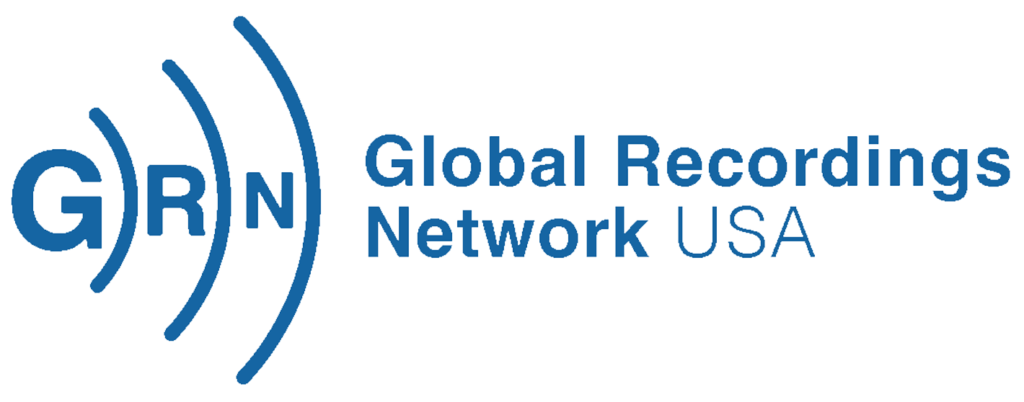August 8, 2025
The Difference Between Reached, Unreached, and Frontier People Groups
Why These Definitions Matter for the Great Commission
The Bible commands us to go and make disciples of all nations, but not every group of people around the world has equal access to the Gospel. That’s why understanding the difference between reached, unreached, and frontier people groups is crucial for any believer or church passionate about fulfilling the Great Commission.
At Global Recordings Network (GRN), these categories help guide our mission: to provide audio recordings of the Gospel in the heart language of every unreached people group on earth. Let’s explore what these terms mean and why they matter more than ever.
What Is a Reached People Group?
A reached people group is a community where a strong Christian presence already exists. In most reached groups, there are established churches, access to Scriptures, local believers sharing the Gospel, and a growing number of followers of Christ. These communities may still have spiritual needs, but the basic infrastructure for discipleship and evangelism is already in place.
Example: The United States is considered a reached nation, even though many people within it are not practicing Christians.
Reaching these groups often involves discipleship, church planting, and revitalization—but not necessarily first-time exposure to the Gospel.
What Is an Unreached People Group?
An unreached people group (UPG) is one where less than 2% of the population is evangelical Christian and there are few, if any, believers capable of evangelizing their own people. These groups may have limited access to Scripture, few churches (if any), and often no Christian witness at all.
According to Joshua Project, over 7,000 unreached people groups exist today, representing billions of people who may live and die without ever hearing the name of Jesus.
These are the communities that still need first exposure to the Gospel message, ideally in their heart language—the language they understand emotionally and spiritually.
What Is a Frontier People Group?
A frontier people group (FPG) is an even more urgent subset of unreached groups. These are ethnolinguistic groups with 0.1% or fewer Christian adherents and no known Gospel movement among them. In most cases, there is no church, no missionaries, and no believers within the group to carry the message of Christ.
Fewer than 2,000 frontier people groups exist today, but they represent some of the most spiritually isolated populations on the planet.
Reaching frontier groups requires cross-cultural missionaries, prayer, financial support, and often specialized tools like audio Bible recordings—especially for oral cultures that cannot read or write.
Why These Terms Matter for Missions
Understanding these distinctions helps the global Church answer essential questions like:
-
Where should we send missionaries?
-
Which languages need Bible translation?
-
How can we support efforts in the most urgent places?
At GRN, we focus our energy and resources on unreached and frontier people groups because they are still waiting to hear the Gospel for the first time. In many cases, these groups are located in remote regions of Asia, Africa, and the Middle East—places where traditional church methods may not work, and where heart-language audio recordings are often the most effective tool for evangelism.
The Role of Heart Language in Reaching the Unreached
A major reason many frontier and unreached groups remain unreached is because they don’t speak a widely used language. Instead, they speak a heart language—the one they grew up with, dream in, and emotionally connect to.
Studies have shown that people are more likely to respond to the Gospel when they hear it in their heart language.
That’s why GRN has developed Gospel recordings in over 6,700 languages and dialects, many of which are spoken by unreached or frontier groups. Through audio tools, mobile apps like 5fish, and solar-powered playback devices, we help bring the story of Jesus to those who may never see a Bible or step into a church.
What Can You Do?
The unfinished task of world evangelization needs all of us. You don’t have to be a missionary to have a global impact. Here’s how you can help reach unreached and frontier people groups today:
-
Pray: Ask God to send workers to frontier fields and open hearts to His Word.
-
Give: Support projects that produce Gospel recordings in new languages.
-
Share: Raise awareness by sharing resources and stories with your church or small group.
-
Go: If God calls you, consider joining the frontlines of cross-cultural missions.
Final Thoughts
The difference between reached, unreached, and frontier people groups isn’t just a missions statistic—it’s a call to action. Until every tribe, tongue, and nation hears the Good News of Jesus in their heart language, the task remains unfinished.
Let’s be the generation that answers the call.
